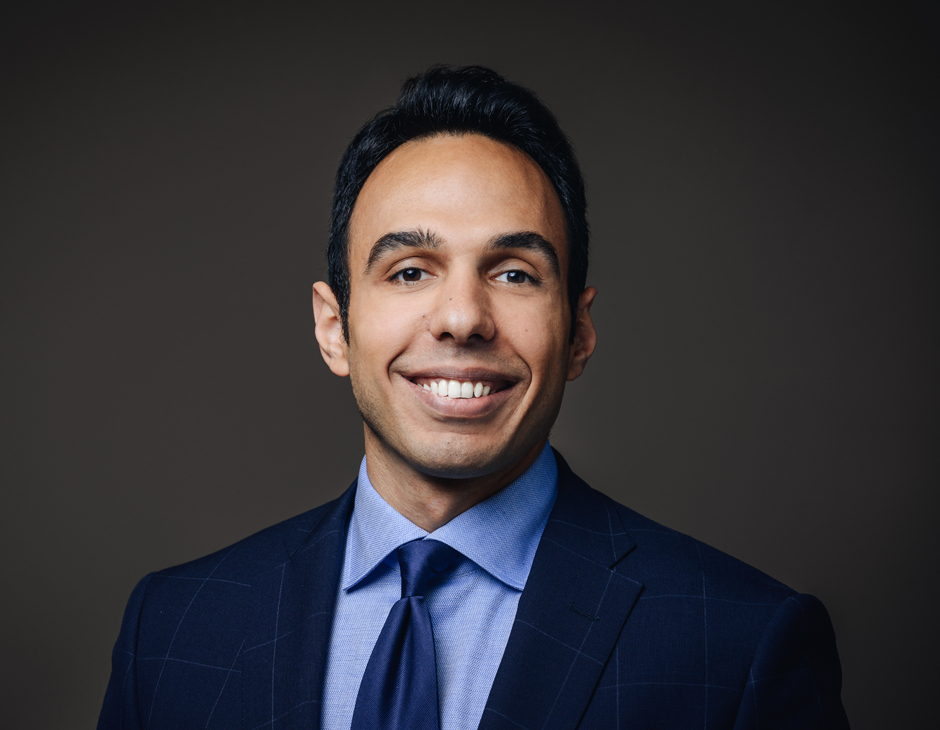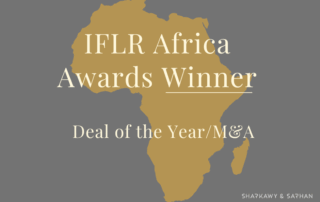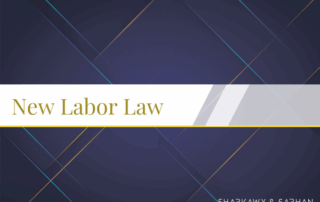2nd of September, 2015
More Room for Foreign Companies to Acquire Land Rights in Sinai
By: Lamiaa Youssef and Ahmed Jamal
Keywords: Infrastructure & Power, Banking & Finance
The president promulgated Presidential Decree issuing Law 95/2015 that introduces amendments to the Decree of the Supreme Council of Armed Forces (SCAF) 14/2012 on the Integrated Development of the Sinai Peninsula (the Sinai Law). The Decree loosens the restrictions on investors who wish to acquire land rights within Sinai Peninsula, as follows.
- The Decree widens the scope of persons exempted from the Sinai Law. The law had exempted existing projects at the time (19 January 2012) from its application. The new Decree extends the exemption to projects that were still in the process of establishment, if they had preliminary agreements with the government or land allocation decisions. Such projects are subject to the applicable law at the time the action was taken.
- The Decree allows Non-Egyptians who receive title to a land in the Sinai Peninsula (not just development areas) by the mean of inheritance, testament or gift to retain some rights over this land. Under the new Decree, they can keep the right of usufruct over the land as well as title to immovable properties established on that land. However, they have to dispose the title of the land itself to an Egyptian within six months from the date the foreigner acquires the land’s ownership. Originally, such persons were obligated to dispose of their ownership within six months; otherwise, the land is mandatorily transferred to the state against a fair price.
- The law also gives the same treatment to Egyptians who acquire a second nationality; or who give up the Egyptian nationality as part of the process of acquiring a foreign nationality; or who have one Non-Egyptian parent and receive the land through any other means than inheritance.
- The maximum period for usufruct rights is extended from 30 to 50 years and can be renewed to another 25 years.
- The Decree allows new contracting parties who receive the rights to land to stipulate in the original contract a clause guaranteeing them the right to pass on their land rights to their legal heirs.
- The Decree allows the President (after the approval of the security agencies) to exempt some companies working in integrated development areas from the statutory percentage of foreign ownership (under the law, foreigners may only own up to 45% of any corporation working in Sinai). These exempted companies must undertake not to change the structure of their shareholders until the end of the project. However, if it becomes necessary to do so, then these companies must obtain the approval of the security agencies before the change. In addition, the president may also exempt a certain city or a part thereof, coastal areas, or the areas designated for the development of the Suez Canal Axis or for the special economic zones within Sinai from following Sinai Law.
- In case of a violation to the usufruct agreement, the law gives the authorities the discretion to grant violators a grace period to fix the violation or terminate the project.
A copy of the decision (Arabic) can be accessed here.
- The Decree widens the scope of persons exempted from the Sinai Law. The law had exempted existing projects at the time (19 January 2012) from its application. The new Decree extends the exemption to projects that were still in the process of establishment, if they had preliminary agreements with the government or land allocation decisions. Such projects are subject to the applicable law at the time the action was taken.
- The Decree allows Non-Egyptians who receive title to a land in the Sinai Peninsula (not just development areas) by the mean of inheritance, testament or gift to retain some rights over this land. Under the new Decree, they can keep the right of usufruct over the land as well as title to immovable properties established on that land. However, they have to dispose the title of the land itself to an Egyptian within six months from the date the foreigner acquires the land’s ownership. Originally, such persons were obligated to dispose of their ownership within six months; otherwise, the land is mandatorily transferred to the state against a fair price.
- The law also gives the same treatment to Egyptians who acquire a second nationality; or who give up the Egyptian nationality as part of the process of acquiring a foreign nationality; or who have one Non-Egyptian parent and receive the land through any other means than inheritance.
- The maximum period for usufruct rights is extended from 30 to 50 years and can be renewed to another 25 years.
- The Decree allows new contracting parties who receive the rights to land to stipulate in the original contract a clause guaranteeing them the right to pass on their land rights to their legal heirs.
- The Decree allows the President (after the approval of the security agencies) to exempt some companies working in integrated development areas from the statutory percentage of foreign ownership (under the law, foreigners may only own up to 45% of any corporation working in Sinai). These exempted companies must undertake not to change the structure of their shareholders until the end of the project. However, if it becomes necessary to do so, then these companies must obtain the approval of the security agencies before the change. In addition, the president may also exempt a certain city or a part thereof, coastal areas, or the areas designated for the development of the Suez Canal Axis or for the special economic zones within Sinai from following Sinai Law.
- In case of a violation to the usufruct agreement, the law gives the authorities the discretion to grant violators a grace period to fix the violation or terminate the project.
A copy of the decision (Arabic) can be accessed here.

More Room for Foreign Companies to Acquire Land Rights in Sinai
2nd of September, 2015
By: Lamiaa Youssef and Ahmed Jamal
Keywords: Infrastructure & Power, Banking & Finance
The president promulgated Presidential Decree issuing Law 95/2015 that introduces amendments to the Decree of the Supreme Council of Armed Forces (SCAF) 14/2012 on the Integrated Development of the Sinai Peninsula (the Sinai Law). The Decree loosens the restrictions on investors who wish to acquire land rights within Sinai Peninsula, as follows.
- The Decree widens the scope of persons exempted from the Sinai Law. The law had exempted existing projects at the time (19 January 2012) from its application. The new Decree extends the exemption to projects that were still in the process of establishment, if they had preliminary agreements with the government or land allocation decisions. Such projects are subject to the applicable law at the time the action was taken.
- The Decree allows Non-Egyptians who receive title to a land in the Sinai Peninsula (not just development areas) by the mean of inheritance, testament or gift to retain some rights over this land. Under the new Decree, they can keep the right of usufruct over the land as well as title to immovable properties established on that land. However, they have to dispose the title of the land itself to an Egyptian within six months from the date the foreigner acquires the land’s ownership. Originally, such persons were obligated to dispose of their ownership within six months; otherwise, the land is mandatorily transferred to the state against a fair price.
- The law also gives the same treatment to Egyptians who acquire a second nationality; or who give up the Egyptian nationality as part of the process of acquiring a foreign nationality; or who have one Non-Egyptian parent and receive the land through any other means than inheritance.
- The maximum period for usufruct rights is extended from 30 to 50 years and can be renewed to another 25 years.
- The Decree allows new contracting parties who receive the rights to land to stipulate in the original contract a clause guaranteeing them the right to pass on their land rights to their legal heirs.
- The Decree allows the President (after the approval of the security agencies) to exempt some companies working in integrated development areas from the statutory percentage of foreign ownership (under the law, foreigners may only own up to 45% of any corporation working in Sinai). These exempted companies must undertake not to change the structure of their shareholders until the end of the project. However, if it becomes necessary to do so, then these companies must obtain the approval of the security agencies before the change. In addition, the president may also exempt a certain city or a part thereof, coastal areas, or the areas designated for the development of the Suez Canal Axis or for the special economic zones within Sinai from following Sinai Law.
- In case of a violation to the usufruct agreement, the law gives the authorities the discretion to grant violators a grace period to fix the violation or terminate the project.
A copy of the decision (Arabic) can be accessed here.
- The Decree widens the scope of persons exempted from the Sinai Law. The law had exempted existing projects at the time (19 January 2012) from its application. The new Decree extends the exemption to projects that were still in the process of establishment, if they had preliminary agreements with the government or land allocation decisions. Such projects are subject to the applicable law at the time the action was taken.
- The Decree allows Non-Egyptians who receive title to a land in the Sinai Peninsula (not just development areas) by the mean of inheritance, testament or gift to retain some rights over this land. Under the new Decree, they can keep the right of usufruct over the land as well as title to immovable properties established on that land. However, they have to dispose the title of the land itself to an Egyptian within six months from the date the foreigner acquires the land’s ownership. Originally, such persons were obligated to dispose of their ownership within six months; otherwise, the land is mandatorily transferred to the state against a fair price.
- The law also gives the same treatment to Egyptians who acquire a second nationality; or who give up the Egyptian nationality as part of the process of acquiring a foreign nationality; or who have one Non-Egyptian parent and receive the land through any other means than inheritance.
- The maximum period for usufruct rights is extended from 30 to 50 years and can be renewed to another 25 years.
- The Decree allows new contracting parties who receive the rights to land to stipulate in the original contract a clause guaranteeing them the right to pass on their land rights to their legal heirs.
- The Decree allows the President (after the approval of the security agencies) to exempt some companies working in integrated development areas from the statutory percentage of foreign ownership (under the law, foreigners may only own up to 45% of any corporation working in Sinai). These exempted companies must undertake not to change the structure of their shareholders until the end of the project. However, if it becomes necessary to do so, then these companies must obtain the approval of the security agencies before the change. In addition, the president may also exempt a certain city or a part thereof, coastal areas, or the areas designated for the development of the Suez Canal Axis or for the special economic zones within Sinai from following Sinai Law.
- In case of a violation to the usufruct agreement, the law gives the authorities the discretion to grant violators a grace period to fix the violation or terminate the project.
A copy of the decision (Arabic) can be accessed here.
Key Contacts
Insights
Disclaimer
The information included in this publication/client alert is not legal advice or any other advice. Publications and client alerts on this site are current as of their date of publication and do not necessarily reflect the present law or regulations. Please feel free to contact us should you need any legal advice related to the publication/client alert. Sharkawy & Sarhan (the “Firm”) will not be held liable for any compensatory, special, direct, incidental, indirect, or consequential damages, exemplary damages or any damages whatsoever arising out of or in connection with the use of the data, information or material included in this publication/client alert. This publication/client alert may contain links to third-party websites that are not controlled by the Firm. These third-party links are made available to you as a convenience and you agree to use these links at your own risk. Please be aware that the Firm is not responsible for the content or services offered by and of third-party websites, links as included in the Newsletter nor are we responsible for the privacy policy or practices of third-party websites links included therein.
Authorization of Use
The data, information, and material included in this publication/client alert are solely owned by the Firm. All rights related are reserved under the laws of the Arab Republic of Egypt. No part of this publication/client alert can be redistributed, copied, or reproduced without the prior written consent of the Firm.





